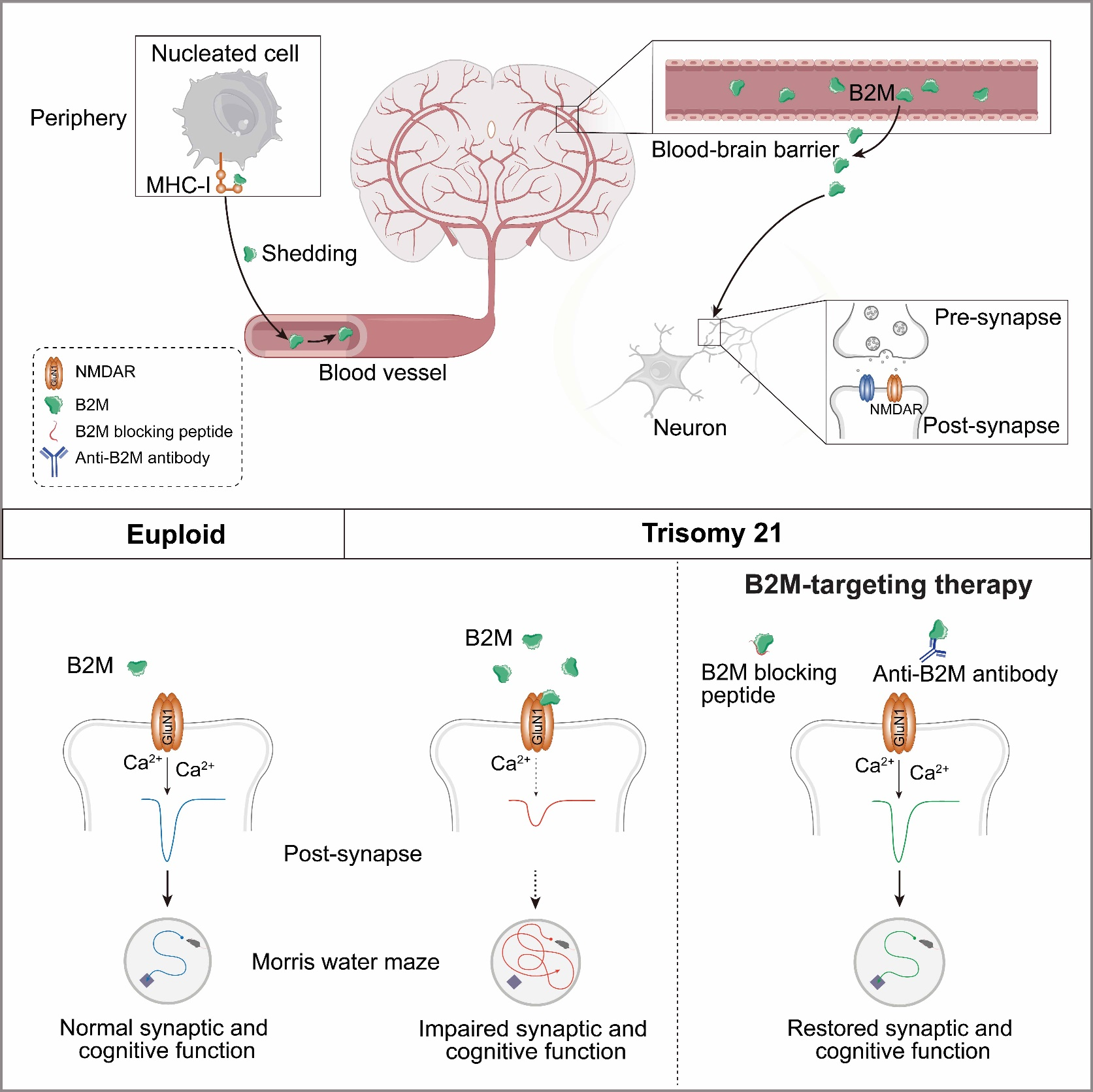Down syndrome, also known as trisomy 21 syndrome, is the most common cause of congenital mental retardation. At present, the birth rate of children with Down's disease is close to 1/800. It is estimated that there are about 1 million children with Down's disease in China, which will cause a heavy burden to families and society. In addition to the dysfunction of the nervous system, patients with Down's disease show a high incidence of hematological diseases, such as leukemia and low immunity.
Wang Xin's team, which is from Medical College of Xiamen University, discovered for the first time that peripheral blood participated in cognitive impairment of Down's syndrome, revealing the increased β2-microglobulin (B2M for short) can enter the brain through the blood-brain barrier and lead to a new mechanism of cognitive impairment.

They found that applying gene knockout or antibody injection to reduce the number of Down syndrome mice in vivo β2-microglobulin content can significantly improve the learning and memory ability of Down mice, suggesting β2-microglobulin may be a new target for the treatment of Down's cognitive impairment. Although gene knockout can well restore the cognitive function of Down's mice, gene knockout is not suitable for the treatment of Down's syndrome in clinical practice. In order to find a more feasible treatment, the research team found a way to inhibit β2-microglobulin is a small molecule polypeptide that binds to glutamate receptor. Injecting this polypeptide drug into Down's mice can significantly improve their cognitive function in a short time without interfere with normal immune function.
In addition, As a pro-aging factor, the level of β2-microglobulin in the blood of the elderly is evidently higher than that of the young. Wang’s team found that this polypeptide drug can also improve cognitive impairment related to aging, indicating that β2-microglobulin may be a common target for many cognitive disorders. This study reveals a new mechanism of cognitive disorders and proposes feasible treatment strategies.
β2-microglobulin functions as an endogenous NMDAR antagonist to impair synaptic function
Journal: Cell
Summary:
Down syndrome (DS) is a neurological disorder with multiple immune-related symptoms; however, crosstalk between the CNS and peripheral immune system remains unexplored. Using parabiosis and plasma infusion, we found that blood-borne factors drive synaptic deficits in DS. Proteomic analysis revealed elevation of β2-microglobulin (B2M), a major histocompatibility complex class I (MHC-I) component, in human DS plasma. Systemic administration of B2M in wild-type mice led to synaptic and memory defects similar to those observed in DS mice. Moreover, genetic ablation of B2m or systemic administration of an anti-B2M antibody counteracts synaptic impairments in DS mice. Mechanistically, we demonstrate that B2M antagonizes NMDA receptor (NMDAR) function through interactions with the GluN1-S2 loop; blocking B2M-NMDAR interactions using competitive peptides restores NMDAR-dependent synaptic function. Our findings identify B2M as an endogenous NMDAR antagonist and reveal a pathophysiological role for circulating B2M in NMDAR dysfunction in DS and related cognitive disorders.





